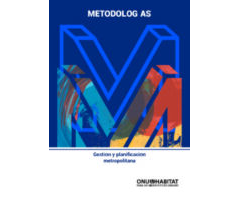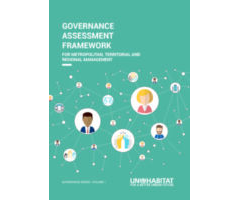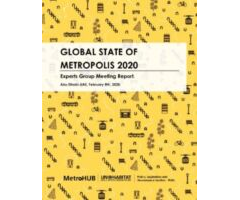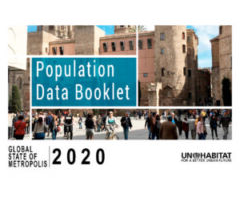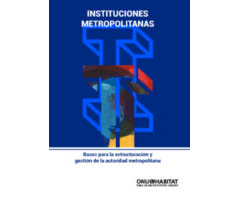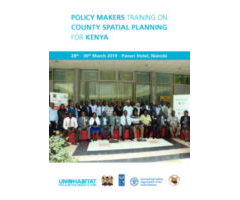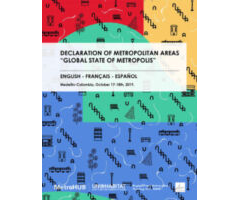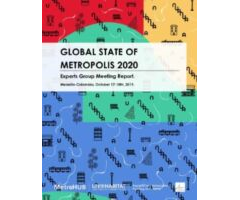Metropolitan Management

Cities and urban dynamics are evolving rapidly around the world. Between 2000 and 2015, cities grew by 1.5% a year in terms of area (EC OECD, 2020). Due to that expansion, many cities have grown beyond the boundaries of their central municipality configuring bigger and denser metropolises, understood as the city and its commuting zone, which consists of suburban, periurban and rural areas economically and socially linked to the city.
Metropolises of the 21st century are characterized for having strong interdependencies from economic, social, and environmental perspectives which need to be managed in an integrated way, based on functional territories and across both jurisdictional boundaries and the urban-rural continuum. UN-Habitat integrative approach for metropolitan management involves local, sub-national and national governments participation in metropolitan governance, metropolitan policies and legislation, metropolitan planning, and metropolitan finance and economics.

UN-Habitat has established the MetroHUB initiative for supporting sustainable development in world’s metropolises and regions, by tailoring innovative metropolitan solutions to local contexts and informing metropolises’ decision-making processes with latest research and data. UN-Habitat work on metropolitan and regional management includes: capacity development of metropolitan and regional authorities; formulation of metropolitan sectoral policies; drafting and improvement of metropolitan legal frameworks; strengthening of supramunicipal governance schemes; designing metropolitan and regional planning instruments; and innovating on financing mechanisms at metropolitan and regional scales.
Specific objectives of the MetroHUB initiative are: i) Developing and sharing information as well as enhancing capacity development and learning; ii) Establishing a strong partnership with relevant networks and creation of a platform for linking several networks; iii) Developing and gathering practical tools and cases studies, with special reference to policies, legislation, governance, planning and finance aspects: iv) Building up a dialogue among diverse actors such as professionals, civil servants, academia, civil society and private sector; v) Promoting a shared vision and consensus on crucial projects for metropolitan development; and vi) Fostering vertical and horizontal collaboration to improve metropolitan development and ensure a participatory approach for decision making by including civil society and especially vulnerable groups such as women, youth and disabled.
Services provided by MetroHUB, namely trainings, field visits, technical assistance, normative support, knowledge exchange, studies, among other, have diverse scopes and time frames according with counterparts and beneficiaries needs and requirements. These services have already been applied, among others, in the following regions and countries:
Other Documents
Methodologies Metropolitan Management and Planning – English
Methodologies Metropolitan…
Published On 1 June 2020
Downloads 197
Views 248
Other Documents
Governance Assessment Framework for Metropolitan Territorial and Regional Management…
Published On 1 June 2020
Downloads 1180
Views 2810
Abu Dhabi’s Experts Group Meeting on the Global State of Metropolis followed the international dialogue…
Published On 1 June 2020
Downloads 15
Views 191
In 2020 there are 1934 metropolises with more than 300,000 inhabitants representing approximately 60%…
Published On 1 June 2020
Downloads 43
Views 356
Other Documents
Metropolitan Institutions – Guidelines for designing and managing the metropolitan…
Published On 1 June 2020
Downloads 28
Views 256
The capacity building exercise on county spatial planning for policy makers from counties in Kenya was…
Published On 1 June 2019
Downloads 21
Views 214
In the City of Medellin, Colombia, on the seventeenth and eighteenth days of October, 2019, the representatives…
Published On 1 June 2019
Downloads 32
Views 198
The first Experts Group Meeting (EGM) on the Global State of Metropolis served as an international dialogue…
Published On 1 June 2019
Downloads 14
Views 225


